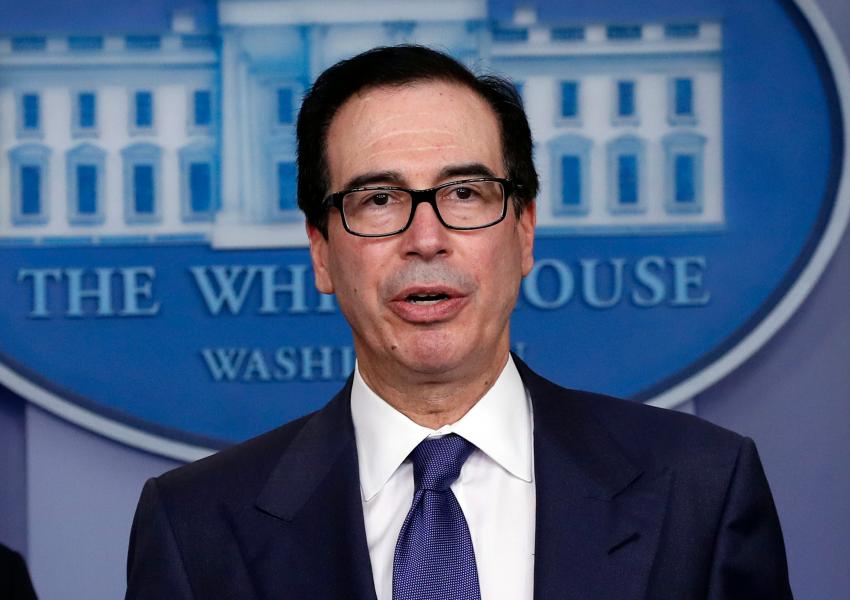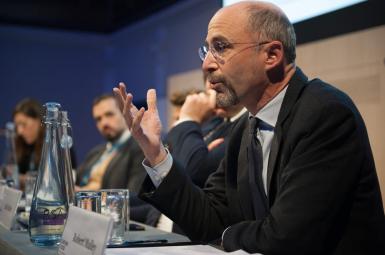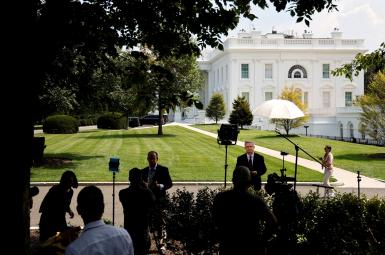
US Blacklists 18 Iranian Banks, Warns Foreign Firms Not To Deal With Iran
In a hard-hitting move the United States Department of Treasury has sanctioned nearly all of Iran's financial sector including 18 Iranian banks on Thursday October 8.
The18 banks had so far escaped the impact of the sanctions Washington imposed on Tehran after President Donald Trump pulled out of the 2015 nuclear deal with Iran in May 2018, to limit Iran's nuclear and military ambitions.
In recent months the United States has stepped up its efforts to put an end to the nuclear deal also called the Joint Comprehensive Plan of Action (JCPOA)
The blacklisting by the US government cuts the Iranian banks off from the international banking system. The move also targets non-Iranian financial institutions that might want to work with Tehran.
In a tweet posted before the US Treasury's announcement, Iran's Foreign Minister Javad Zarif reacted to early reports that signalled such a move by the US. He wrote: "Amid Covid19 pandemic, U.S. regime wants to blow up our remaining channels to pay for food & medicine. Iranians WILL survive this latest of cruelties. But conspiring to starve a population is a crime against humanity. Culprits & enablers—who block our money—WILL face justice."
The move is considered yet another blow to Iran's already failing economy that has been under immense pressure as a result of US sanctions particularly on its oil export and international banking.
Iran has been finding it hard to repatriate the income resulting from its extremely limited oil export as many countries decided during the past year to stop buying oil from Iran fearing secondary sanctions.
Meanwhile, the new blacklisting is said to further deepen tensions between European nations who want to continue trade with Iran with the intention of helping Tehran to keep the nuclear deal with the West alive.
Announcing the blacklisting on Thursday, Treasury Secretary Steven Mnuchin said that the move "reflects the United States' commitment to stop Iran's illicit access to U.S. dollars," adding that “Our sanctions programs will continue until Iran stops its support of terrorist activities and ends its nuclear programs."
However, Mnuchin stated: "Today’s actions will continue to allow for humanitarian transactions to support the Iranian people.”
The statement by the Treasury said that the move "targets 16 Iranian banks for their role in the country's financial sector, one bank for being owned or controlled by another sanctioned Iranian bank and one military-affiliated bank."
Previous reports by economic analysts said most Iranian banks were being controlled or influenced by the revolutionary guards (IRGC) an entity designated by the United States as a terrorist organization.
The new move by the US Treasury targets the Amin Investment Bank, Bank Keshavarzi Iran, Bank Maskan, Bank Refah Kargaran, Bank-e Shahr, Eghtesad Novin Bank, Gharzolhasaneh Resalat Bank, Hekmat Iranian Bank, Iran Zamin Bank, Karafarin Bank, Khavarmianeh Bank, Mehr Iran Credit Union Bank, Pasargad Bank, Saman Bank, Sarmayeh Bank, Tosee Taavon Bank, Tourism Bank and Islamic Regional Cooperation Bank.
The US Treasury gave foreign companies working with Iran 45 days to wind down their operations before facing US “secondary sanctions.”
Reports say European nations have opposed the new sanctions because it will make their biggest banks and financial institutions vulnerable to U.S. penalties for conducting business with Iran that had previously been allowed.
Despite opposition by most UN Security Council members, last month, the US unilaterally restored all international sanctions against Iran that had been eased or lifted under the 2015 nuclear deal.
The new move by the US treasury which prevents Iranian banks to have business with their foreign counterparts, is likely to effectively destroy the last chances for the survival of the JCPOA although Iran has always insisted on keeping the accord alive.
Although President Trump has said he would still be willing to negotiate with Iran if he is re-elected in November, Iran seems to have pinned its hope on the victory of his Democrat Party opponent Joe Biden. He and his running mate Kamala Harris have said that they would return to the JCPOA if Biden wins the election.








